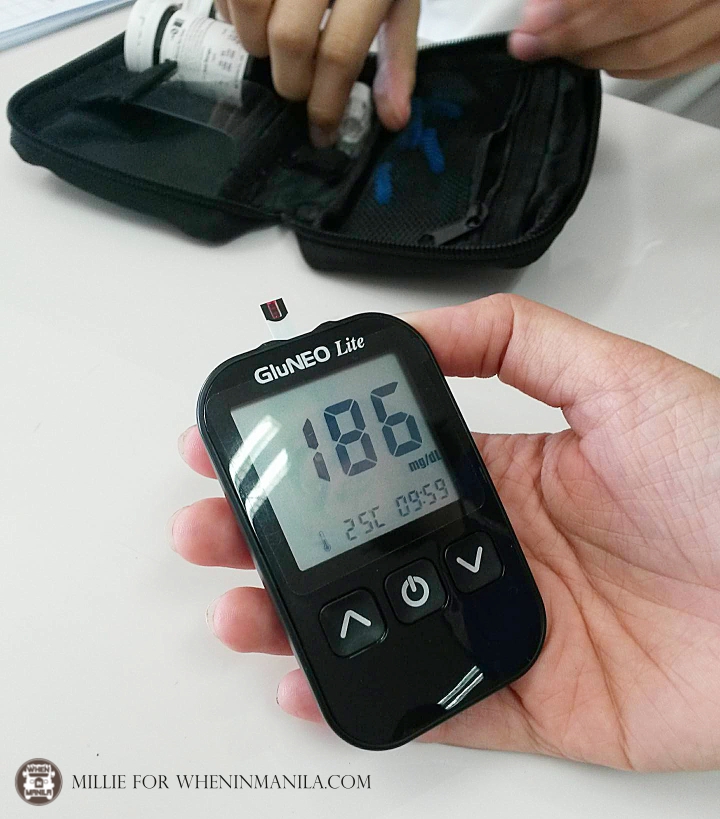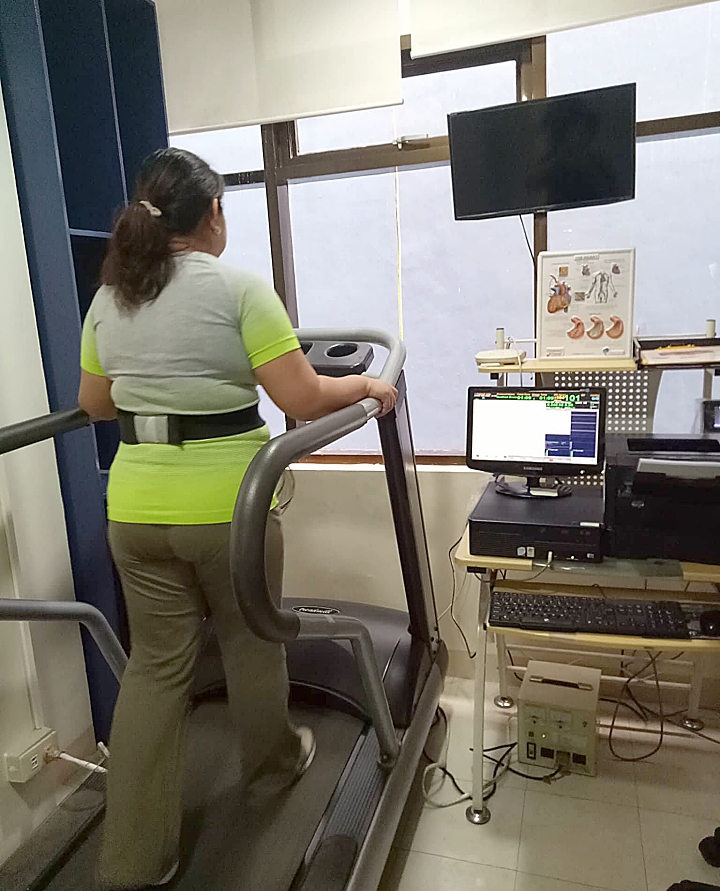Gone are the days when heart attack cases mostly happen to someone of age like 50 years old and above. As we emerge, so are the possibilities of cardiovascular diseases due to a sedentary lifestyle and unhealthy habits.
This traitor’s disease, also known as non-communicable disease or lifestyle disease, happens when you least expect it. However, there are ways to prevent it. February is Heart Month. Hence, we asked a Cardiologist to give pieces of advice to have a healthy heart.
RELATED: Subtle signs of heart attack.
Before we go through these tests, let’s determine first what are the different kinds of cardiovascular diseases. According to the American Heart Association, World Health Organization, and Department of Health, these are:
1. Coronary Heart Disease – arteries supply oxygen-rich blood to our heart muscle. Therefore, a coronary heart disease is when arteries are blocked by a waxy substance called ‘plaque.’ However, the buildup of plaque occurs over many years, as per Dr. Palma.
2. Cerebrovascular Disease – MedicalNewsToday.com defines this diseases a condition that affects the blood supply to the brain. Early symptoms of a cerebrovascular attack include weakness and difficulty communicating. Symptoms of a cerebral hemorrhage include a sudden, severe headache.
3. Peripheral Arterial Disease – diseases of a blood vessel supplying the arms and legs.
4. Rheumatic Heart Disease – damage to the heart muscle and heart valves from rheumatic fever, most caused by streptococcal bacteria. This is why doctors are aggressive to give immediate cure when we have prolonged cough and colds.
5. Congenital Heart Disease – malformations of heart structure since birth
6. Deep Vein Thrombosis and Pulmonary Embolism – blood clots in the leg veins, which can dislodge and move to the heart and lungs.
Thankfully, there are tests that could help prevent and determine if you have or at risk of cardiovascular diseases.
Heart tests that could prevent and determine heart diseases
Glucose test or Fasting Blood Sugar
FBS helps determine whether or not you have Diabetes.
Regular monitoring of blood sugar before and after eating is vital. If you live in BF Paranaque, swing by The Diabetes Store to ask more about the disease.
As we all know, Diabetes is another chronic disease that might build up complications that could lead to a heart attack.
Lipid Profile Test
Lipids are a group of fats and fat-like substances that are important constituents of cells and sources of energy. A lipid profile test helps determine if your HDL (high-density lipoprotein cholesterol), a.k.a. ‘good cholesterol’, LDL (low-density cholesterol), a.k.a. ‘bad cholesterol’, and high triglycerides are in normal stage or in need of immediate medication. High results could contribute to cardiovascular diseases.
When to take the test (for FBS and Lipid Profile): Typically, an 8-10 hour fasting is required. However, you need to consult with your doctor before getting these tests done.
Get it if: Usually, these tests are for 40 years old and up, but now, as early as 20 years old, especially, if you have a history of Diabetes and hypertension in the family.
ECG or EKG (Electrocardiogram)
This test can detect heart disease, heart attack, or abnormal heart through your heart rate or rhythm.
Chest X-Ray
Although X-rays shouldn’t be done as often as ECG due to its radiation, it could also reveal if your heart is enlarged and/or if lungs are congested with fluid.
2D Echo (with or without Doppler)
2D Echo is referred to as the ultrasound of the heart. It can provide images of the heart, which could show if you have an enlarged heart or not enough blood and oxygen in your blood vessels.
Stress Test + ECG
A stress test is to gauge your tolerance for stress. It has 6 stages, in which you must surpass at least the 4th stage. It’s like a typical exercise but it checks your heart rate and rhythm with blood pressure monitoring as you progress. Not finishing the six stages doesn’t mean you have a poor heart, though. Depending on your doctor’s advice, you might just have a low tolerance for stress like me.
I had mine done at Tagaytay Medical Center last month. I stopped at the 4th stage with a maximum of 130/80 blood pressure and a minimum or resting BP reading of 100/90, 120/80. According to my cardiologist, my heart and bp are normal. I just have a low tolerance for stress.
Tips to prevent heart diseases
“Heart disease is the number 1 killer in the Philippines today,” says Dr. Rex Palma of Tagaytay Medical Center. According to him, the Philippine Heart Association devised simple steps or ways of maintaining a healthy lifestyle. They dubbed it as 5-2-1-0-0 (Do 52100 daily!).
What is 5-2-1-0-0?
The ‘52100’ was derived from the collective theories of the members of the Philippine Heart Association. The Cardiologists believe that heart diseases can alleviate through this initiative by spreading awareness with the help of the Department of Health and other organizations such as hospitals and diagnostic centers.
1st tip: 5 stands for “5 servings of fruits and vegetables”
We should have more of the vegetables, and fruits in our daily meals, and less of the non-essential, and what we call junk foods or fast foods. Get low in salt content, limit saturated fat (animal fats), trans fat, and red meat.
2nd tip: 2 stands for “2 hours maximum of screen time”
I know y’all would react. Sadly, as we become a web-centric world, the more we have to limit ourselves from using gadgets such as laptops, mobile phones, and alike. “Move your butts! We should go out there and be physically active! Limit inactivity to just 2 hours,” Dr. Palma advised. He added that we could still be active while watching TV by doing squats, jumping jack, or running on a treadmill (if you have) while watching your favorite movie or teleserye.
3rd tip: 1 stands for “1 hour of moderate physical activity and exercise”
1 hour is too much for people who are limited with time due to work and other responsibilities. But it’s our sole responsibility as well to be healthy for our family. Consequently, the American Heart Association recommends at least 30 minutes of moderate-intensity activity at least 5 days a week, or at least 25 minutes of vigorous aerobic activity at least 3 days per week. “Something is always better than nothing,” Dr. Palma reiterates. He added, “at least start somewhere, 5 minutes of walking initially, or try to walk to your school or office, take the stairs to the 3rd floor of your building, walk your dog around your village. Try to progress your activity regularly until you develop your rhythm, and endurance, then you can now aim to achieve your goal.”
4th tip: 0 means ZERO intake of sugary foods and sweetened beverages, a.k.a Iced Tea, Frappes, and alike.
Say goodbye to your cupcakes, cakes, and iced teas from now on. These foods contain refined sugar and other chemicals that can shoot up your sugar levels. Ideally, say no to sugar and sugary foods. Or at least, cut your regular sugar use to half or 75%, Dr. Palma advised.
5th tip: 0 means NO to smoking and second-hand smoke
Support the advocacy to ban smoking. Smoking does not provide any benefit and does only harm to our heart and to our health in general. Even second-hand smoking is more dangerous.. So if you smoke, I hope you think of your loved ones around you, your children, or even the unborn child in a mother’s womb. They do not deserve to be exposed to a health hazard.
READ: INSPIRING: This former chain-smoker saved P45,000 since he stopped smoking
Click the next page to know where you can take these heart tests











